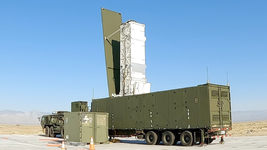Here's a good intro/update on the war in Myanmar/Burma.
Lots of stuff going on in the Indo-Pacific region but not seeing much coverage in mainstream news.
“It isn’t as simple as lowering the minimum ages [to boost birth rates],” Peng said. “To have more children, we are asking women to get married early – this still means we still see women as baby-making machines.“
This is a major problem with political correctness. If you want to boost birth rates suddenly you’re seen as dehumanizing women.

The ICC has issued an arrest warrant for the Myanmarese junta leader Ming Aung Hlaing, citing crimes against humanity, ethnic cleasing and genocide in the handling of the Rohingya issue.

Yesterday Trump's announced the Golden Dome to the public. The Golden Dome is a multi layered defensive system tasked with protecting the US from ballistic missiles, advanced cruise missiles and hypersonic missiles. The estimated cost will be 175 billion USD, and the project will be headed by General Michael Gutlein
Washington, DC – United States President Donald Trump and Secretary of Defense Pete Hegseth have laid out their clearest plan yet for the “Golden Dome” missile defence programme, which would include putting weapons in space for the first time.
Speaking from the White House on Tuesday, Trump said he had “officially selected an architecture” for the system, designed to take down “hypersonic missiles, ballistic missiles and advanced cruise missiles”.
“I promised the American people that I would build a cutting-edge missile defence shield to protect our homeland from the threat of foreign missile attack,” Trump told reporters in the Oval Office.
The Golden Dome system, he added, would include “space-based sensors and interceptors”.
“ Once fully constructed, the Golden Dome will be capable of intercepting missiles even if they are launched from other sides of the world and even if they’re launched from space,” Trump continued. “We will have the best system ever built.”
The announcement comes just less than four months after Trump signed an executive order kicking off the programme’s development. General Michael Guetlein – who currently serves as the vice chief of space operations at Space Force, a branch of the US military – is slated to manage the programme.
Speaking at the event, Hegseth hailed the plan as a “game changer” and a “generational investment in security of America and Americans”.
The White House did not immediately release further details about the missile defence system, and the Pentagon is reportedly still working out its capabilities and requirements.
The Congressional Budget Office estimated earlier this month that the space-based components of the Golden Dome alone could cost as much as $542bn over the next 20 years.
It noted that a high number of sensors and interceptors would be needed for a space-based system to be effective, particularly as foreign militaries like North Korea’s grow more sophisticated.
But on Tuesday, Trump outlined a much lower price tag and timeline.
“It should be fully operational before the end of my term. So, we’ll have it done in about three years,” Trump said.
He estimated the total cost to add up to about $175bn, adding that he planned to use existing defence capabilities to build the system.
But the funding for the programme has so far not been secured. At Tuesday’s news conference, Trump confirmed that he was seeking $25bn for the system in a tax cut bill currently moving through Congress, although that sum could be cut amid ongoing negotiations.
There is likely to be some variation in the total cost of the project. The Associated Press news agency, for example, cited an unnamed government official as saying that Trump had been given three versions of the plan, described as “medium”, “high” and “extra high”.
Those tiers corresponded to how many satellites, sensors and interceptors would be put in space as part of the programme. The news agency reported that Trump chose the “high” version, which has an initial cost ranging between $30bn and $100bn.
As he explained his plans for the Golden Dome on Tuesday, Trump cited several inspirations, including Israel’s “Iron Dome” missile defence system, which is funded in part by the US.
He also pointed to the work of a fellow Republican, the late President Ronald Reagan, who served in the White House during the Cold War in the 1980s
As part of his Strategic Defense Initiative in 1983, Reagan had proposed a barrier to nuclear weapons that included space-based technology.
“ We will truly be completing the job that President Reagan started 40 years ago, forever ending the missile threat to the American homeland,” Trump said.
But questions have persisted over the viability of a space-based defence system, its price, and whether it could ignite a new arms race.
Democrats have also questioned the possible involvement of Elon Musk’s SpaceX, which is a frontrunner among the technology companies seeking to build key components of the system.
A group of 42 Democratic lawmakers have called for a probe into Musk’s role in the bidding process, pointing to his position as a special adviser to Trump and his substantial campaign donations to the president.
“If Mr. Musk were to exercise improper influence over the Golden Dome contract, it would be another example
of a disturbing pattern of Mr. Musk flouting conflict of interest rules,” the Democrats wrote in a letter, calling for the probe.
On Tuesday, Trump did not directly respond to a question about which companies would be involved in the Golden Dome. Instead, he highlighted that the system would boost industries in states like Alaska, Indiana, Florida and Georgia.
He added, “Canada has called us, and they want to be a part of it. So we’ll be talking to them.”
www.aljazeera.com/amp/news/2025/5/20/trump-says-us-will-put-weapons-in-space-as-part-of-golden-dome-plan
Video of the announcement:
Visual used during the presentation
View attachment 21144
First reaction of the Chinese whom this is obviously for a big part about.
In news more related to this thread, China threatening to block water from India if the Indians do the same to the Paks.
JD Vance visited India, laying the groundwork for a future containment and squeezing of China from the South. US weapon acquisition (including the F35), trade deals, cooperation in the energy sector and manufacturing outshoring are some of the agenda points. A baseline Terms of Reference for a future trade deal was agreed upon.
